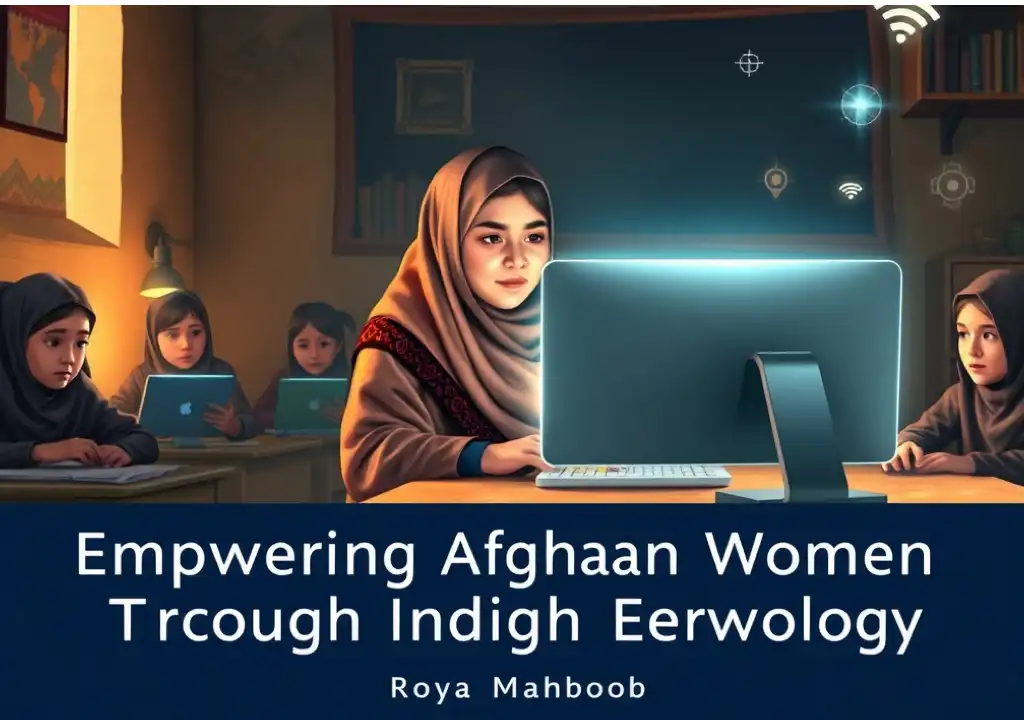Bridging Education and Employment
Roya Mahboob has dedicated her life to using technology to uplift Afghan women. Her journey began at 16, when a visit to Herat’s only internet café sparked her passion for computers. By 23, she had become Afghanistan’s first female tech CEO, launching Afghan Citadel Software (ACS) in 2010 to involve more women in the country’s budding tech sector.
Mahboob criticizes the lack of critical thinking instilled in Afghan women. Born in Iran during the Soviet invasion, she returned to Afghanistan after the Taliban’s fall in 2003, pursued university education, and learned English. Alongside her sister Elaha, she co-founded ACS to help women become financially independent through digital literacy. She recalls entering the internet café with a friend, drawing stares from men—but the experience marked her deep dive into the digital world. Through social media and remote work, she realized the internet’s transformative power.
Afghanistan has only 6.4 internet users per 100 people, though this number has been rising rapidly in the past decade.
Technology as a Lifeline
In Afghanistan’s male-dominated society, women are often confined to their homes and restricted from social activities. Mahboob sought to empower women through online tools, enabling them to learn and earn from home. She believes digital access can give women a voice and connect them to global opportunities, turning them into “digital citizens” free from societal limitations.
Cultural Barriers and Challenges
Starting a tech company in Afghanistan was not easy. Mahboob faced daily obstacles—from skepticism to active sabotage. Clients distrusted female entrepreneurs, questioned the value of IT, and even tried to underpay. She and her team were monitored, threatened, and harassed by conservative elements deeply entrenched in society and government.
With limited local business prospects, Mahboob turned to social media, persistently reaching out to about 500 international companies for outsourcing opportunities. Her efforts led to a partnership with New York-based philanthropist Francesco Rulli and the founding of the Digital Citizen Fund (DCF), a nonprofit helping women and girls in developing countries access technology and global networks.
DCF has established 11 tech centers in schools, two media and innovation centers, and trained over 8,000 girls in digital skills. Plans are underway to expand to Mexico and train another 5,000 students.
A Vision Beyond Borders
Forced to flee Afghanistan in 2014 due to mounting threats, Mahboob now lives in New York. Yet, she remains closely connected to her projects. One of her ongoing initiatives is Edy Edy, a platform linking schools and businesses to provide practical training and boost employability among Afghan youth.
Her mission is to close the gap between formal education and the job market. With Afghanistan’s economy heavily reliant on foreign aid—61% of the national budget—and widespread youth unemployment, Mahboob sees applied tech skills as key to national development. The brain drain and vulnerability to militant recruitment are major concerns, with over 50,000 Afghans leaving the country in 2016 alone.
Mahboob is confident that technology is central to building a brighter future. Her ultimate goal: to empower Afghan women and children through digital literacy and connect them with the world beyond their own borders.

